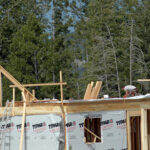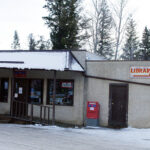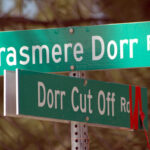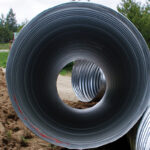Home »

Elephant Hill backfire fiasco needs to be investigated
Wildfires have now scorched more than 5,000 sq. km in B.C., burning more than 100 homes and displacing close to 40,000 people and we’re not even halfway through August.
t’s a tragedy! But isn’t it ironic that the biggest blaze of all was set by the firefighters themselves and has now burned more than 110,0000 hectares and is still out of control?
The Elephant Hill fire near Clinton started as a lightning fire, as the majority of forest fires do, but a few days later firefighters did what they often do. They lit a backfire and it exploded engulfing more forest, range and grasslands than the original fire itself.
This is not an uncommon occurrence. Backfires were used to fight the giant Lamb Creek wildfire that threatened Cranbrook in 2003. One was lit last week to fight the Island Pond forest fire near Canal Flats that’s been pumping smoke over Cranbrook for days. Backfires are one of the main “tools” in the firefighters’ box.
But isn’t it about time firefighting experts reconsidered this controversial practice?
Let me be honest. I’m not a trained firefighter and don’t consider myself an expert. However, I did spend a decade from my late teens through my twenties fighting forest fires in the West Kootenay. Equipped with a pump, or a “piss-can,” on my back and a “Pulaski,” named for famed Idaho firefighter Ed Pulaski, who invented the part-axe, part-shovel and part-hoe, I and many other firefighters in those days would dig guards, fall undergrowth and bury spot fires after water-bombers, D-9 bulldozers and other heavy equipment had been used to slow down the blazing conflagrations.
We would spend weeks in isolated, sub-alpine, mountain camps doing this and we learned a lot about fire behaviour on the job unlike “modern” firefighters today who learn their skills in the classroom and work “shifts” returning home at night. Yes, and we sometimes used drip torches to light backfires, but only rarely and only after the fire had stabilized and after the wind had reversed direction for at least a day.
Today firefighting is different. It’s been “professionalized” and firefighters go to school to lean their skills. No doubt this is good in some ways and is a safer and more efficient way to take on Mother Nature when lightning crackles in the sky. But I also think there’s more pressure today to put fires out in a hurry to avoid discouraging recreational use of the forest, scare away the tourists and to keep the mills humming and revenue coming in. And this can lead to hurried decision-making as may have been the case at Elephant Hill and other fires in recent years.
Let’s face it. What’s more fickle than the wind? Wind can change direction a dozen times in a day. Big fires produce their own winds. Updrafts, downdrafts, fire tornados and the like. Firefighters would do well to remember what their parents told them. Don’t play with matches! Clinton area ranchers are now claiming compensation for dead cattle and blackened ranges. If compensation is ordered, who’s going to pay for it? The B.C. taxpayers of course.
There’s another significant aspect to the “modern” method of fighting forest fires in B.C. Prior to the 1990s or so when the fire hazard was extreme the BC Forest Service would “close the bush.” And close meant closed! No camping, hiking or dirt bikes shooting sparks into the tinder. If memory serves me correctly, there were stiff fines for violating a closure order. And the closure also applied to industry, which resulted in laid off loggers being temporarily hired as firefighters with the bush skills to do it.
The BC Cattlemen’s Association has called for the bush to be closed. So has Kootenay East MLA Tom Shypitka. Good for them!
With this forest fire season shaping up to be the most destructive on record, surely it’s time for another public inquiry into how we’re dealing with the threat? In an ominous era of climate change, we can’t afford another forest fire calamity like this or there won’t be any forests left in B.C. worth burning.
– Gerry Warner is a retired journalist and a former forest firefighter








